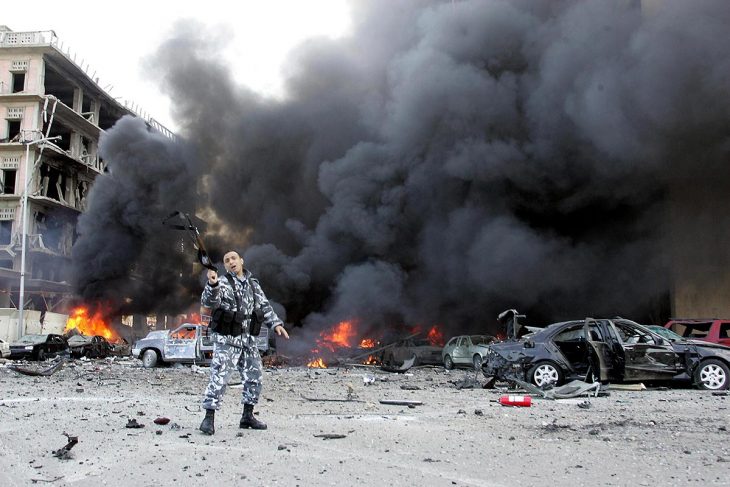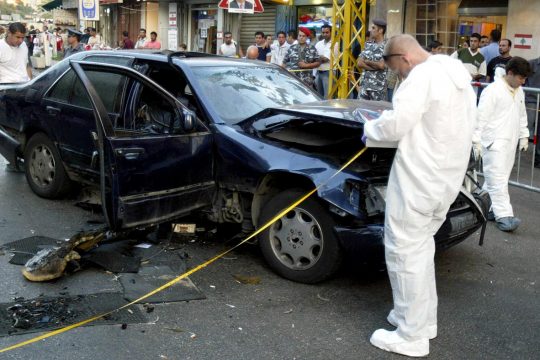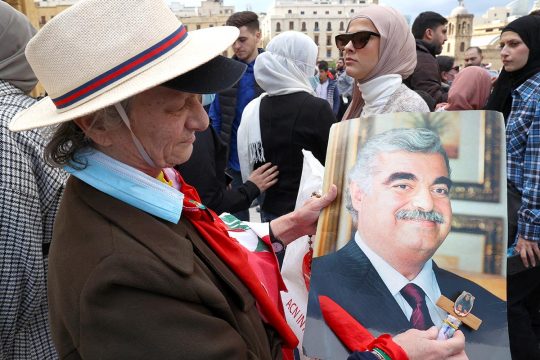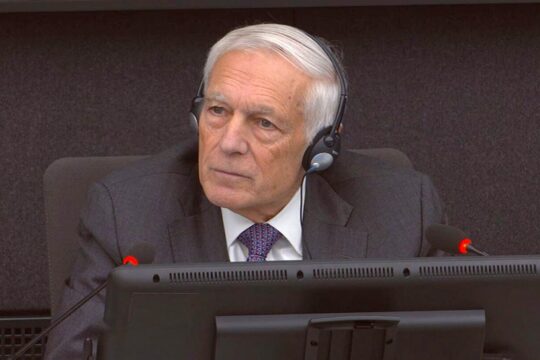Silence reigns at the Special Tribunal for Lebanon (STL) about the historical moment when the judges will deliver the long-awaited judgement in the case against four suspects of the bomb-attack that killed former Lebanese prime minister Rafik Hariri and 21 others in 2005. Four months ago, on 5 March, the STL trial chamber said the verdict would be delivered in public session “mid-May”, which already sounded vague. Now the STL website carries a message saying that “given the prevailing circumstances” linked to the Covid-19 crisis, the date will be specified “as soon as possible.”
In contrast, a court in Rwanda has recently delivered a high-profile genocide verdict by videoconference; at least two war crimes trials have opened in the past weeks before German courts; and the International Criminal Court is organising hearings. But the STL, based in Leidschendam (near The Hague) in The Netherlands, has decided to postpone its first and only terrorism verdict to be reached fifteen years after the beginning of the investigations and more than six years after the trial started. The postponement has attracted criticism towards a court that is already suffering from a range of bad reviews for its lack of achievements and impact, and huge cost.
The written judgment should be handed down, read out or issued. My clients, the accused, the Lebanese public and tax payers are entitled to know what it says." – Peter Haynes
There’s no reason why the publication should be delayed, says counsel Peter Haynes, who represents 70 victims, including Saad Hariri, the son of the killed prime minister. “The reading of a judgment summary is not a judicial or legal event. It’s a public relations event. The written judgment should be handed down, read out or issued. My clients, the accused, the Lebanese public and tax payers are entitled to know what it says,” states Haynes. The usual public session with all parties present is impossible now as the pandemic makes international travelling difficult. While “it is unfortunate because the victims would have loved to be in the court room,” Haynes suggests that “a Zoom-judgement” (Zoom is a popular, online platform for audio and video conferences) should be organized and that David Re, the presiding judge of the trial chamber, “would be reading the judgement to us from his dining room.”
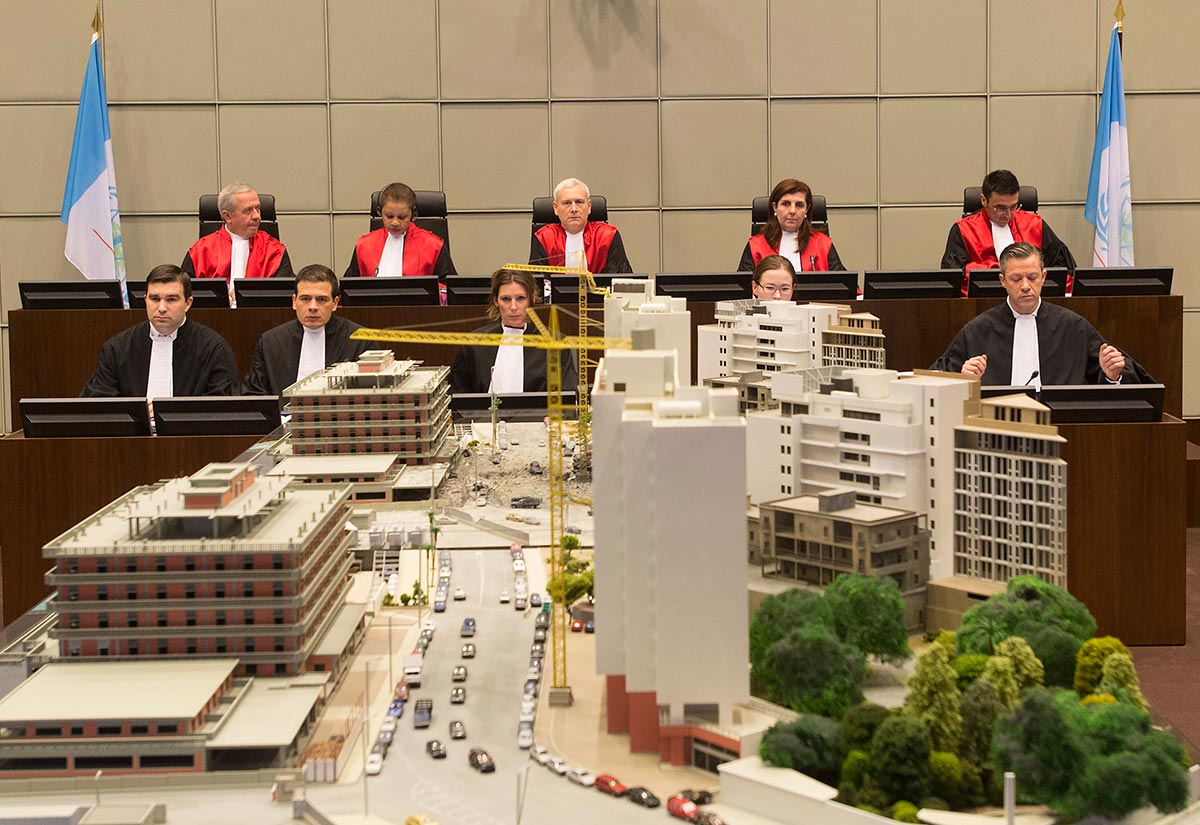
22 dead, a full inquiry, no accused in the dock
On Valentine’s Day, 14 February 2005, at 12.55 o’clock, a massive car bomb exploded in downtown Beirut. As the convoy of Rafik Hariri was passing Hotel St-Georges a truck carrying military-grade explosives was detonated, leaving a crater of ten metres wide and two metres deep in the street. The suicide bomb attack killed 22 people and injured 226 persons. Among the victims were former prime minister Hariri, bodyguards, workers and bystanders. Immediately the United Nations Secretary General sent a fact-finding mission, which arrived in Beirut on 25 February 2005, to find that the crime scene had not been preserved according to standards and important evidence was removed and destroyed without record. On 7 April 2005, the UN Security Council established the UN International Independent Investigation Commission (UNIIIC) to assist the Lebanese authorities investigating the attack, “including to help identify its perpetrators, sponsors, organizers and accomplices.”
Two years later, on 30 May 2007, the Special Tribunal for Lebanon was created by the UN Security Council through its Resolution 1757. Lebanon would foot 49 percent of the bill for the tribunal, while the rest of the budget would be financed by other states (see the box below). On 1 March 2009 the STL started officially working as the first international criminal tribunal to deal with terrorism. It’s ‘primary’ mandate is to prosecute the bomb attack that killed Hariri and 21 others, but the tribunal also has jurisdiction over related assassination attacks in Lebanon between 1 October 2004 and 12 December 2005. The STL inherited four years of investigative work by the UNIIIC.
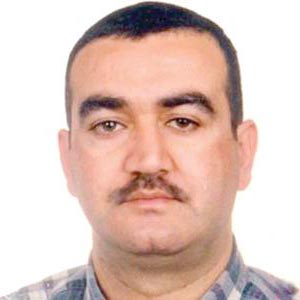
In 2011 the prosecutor filed a confidential indictment against Salim Jamil Ayyash, Mustafa Amine Badreddine, Hussein Hassan Oneissi and Assad Hassan Sabra. In 2013 Hassan Habib Merhi was added as co-accused. All men were allegedly linked to Hezbollah, a powerful political and military force in Lebanon, supported by Syria and Iran. All defendants were charged with the Hariri attack. The terrorism trial began on 16 January 2014. However none of the suspects was located or handed over to the tribunal, adding the unique feature of a first trial in absentia before an international court since Nuremberg. In 2016 proceedings against Badreddine were terminated after he was confirmed dead.
A total cost of at least 970 million dollars for a single trial on a single attack that killed 22 people, with none of the four accused present in the dock.
In eleven years, the tribunal has cost 800 million dollars (net) at a minimum, to which the 170 million dollars spent by the UNIIIC in its 4-year existence must be added, without counting unknown extra expenses during the setting up of the court in 2008-2009. A total cost of at least 970 million dollars for a single trial on a single attack that killed 22 people, with none of the four accused present in the dock.
From a “good idea” to “make-believe”
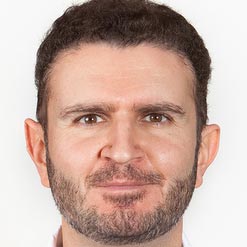
“Initially I saw the establishment of the tribunal as a good idea for justice,” says Habib Nassar, director of policy and research at Impunity Watch, an NGO. “Historically political assassinations have been systematically used in Lebanon against politicians, journalists, intellectuals and others. These horrible crimes have destabilised the country, led to conflict and unrest in some cases. You want justice for these lost lives and accountability, so that these crimes don’t go unpunished.”
Also Imad Salamey, president of Legal Action and associate professor of political science and international affairs at the Lebanese American University in Lebanon, says that “overwhelmingly the Lebanese were in favour in the beginning. That the truth would be emerging out of this assassination, and the international community ran to their aid.”
Haynes says that “by definition the victims are supportive of the institution – to discover the truth about what happened to them and their loved ones and to be part of a process.”
We don’t know whether the accused are alive. None of us had contact with them. We never received instructions from them." – Guénaël Mettraux
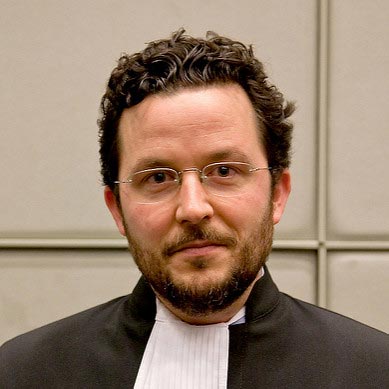
But from the start there also has been severe criticism against the fact that this is a trial in absentia. “We don’t know whether the accused are alive. None of us had contact with them. We never received instructions from them. We have no idea whether they even knew the trial was taking place. To try a person without his presence and involvement is problematic in many ways,” says law professor Guénaël Mettraux, who was defence co-counsel for Sabra. “We were part of the make-believe intended to give the exercise an air of respectability,” states Mettraux, who resigned as defence lawyer when he became judge at the Kosovo Specialist Chambers.
The limits of in absentia trials
Nassar shares these objections. “Trials in absentia can work in permanent structures. But this is a special court which is not permanent. What if Ayyash is arrested in the far future when the tribunal will no longer be operational? What’s the mechanism for a re-trial? It poses so many questions,” he says. “Is it worth all the money to have a trial in absentia?” asks Mettraux. “Because if a suspect is handed over to the tribunal, the trial will have to be done all over again and the record will be challenged because the accused never got a chance to be heard or tell their story,” he points out, stressing that an in absentia trial is also strategically unwise, as it takes the pressure off from states to arrest suspects.
“It seems the protagonists in Lebanon have reached some sort of an agreement. The government pays for the tribunal. The contributions never stopped, even when the Hezbollah is in power,” says Nassar, adding: “Have political forces agreed to pay in exchange for no genuine cooperation by Lebanon? The authorities never cooperated such as arresting suspects.” At least two Lebanese officials involved in the investigations were killed. “Even if there were attempts to cooperate, the response has been violence,” says Nassar.
Where is the chain of command? We hear nothing about those who ordered or instigated this crime. Now it looks as if the crimes happened in a vacuum." – Habib Nassar
The masterminds are off the hook
The four individuals are charged with conspiracy to commit a terrorist act and other charges, such as intentional homicide (Ayyash) or being accomplices to intentional homicide (the other three). Ayyash was allegedly “at the epicenter of the planning and the execution of the attack”, the prosecution stated during the closing submissions in September 2018. He “led and coordinated the assassination unit”, was engaged over four months in surveillance of Hariri, bought the truck, coordinated the transporting of the bomb to the scene and made sure it would explode at that fatal moment. The others were allegedly involved in selecting a man called Abu Adass, who – falsely, according to the prosecution – claimed responsibility for the suicide bomb attack on behalf of a fake fundamentalist Islamic group. The prosecution states the suspects “shared a common bond” by being linked to Hezbollah.
The four accused, however, are thought to be involved at the lower levels of the organisation of the crime. “They didn’t act on their own. It was a politically orchestrated plan,” states Imad Salamey. The STL has never charged the masterminds, commanders or financiers of the attack. Depending on who you ask, people accuse Hezbollah, Iran, Lebanese and Syrian top security officials and politicians for ordering the onslaught. “The most disturbing aspect of this case is that the masterminds behind the killing – and everybody who followed the trial knows who they are – are unlikely to suffer any consequences for that crime,” says Mettraux.
Also Nassar has “a real question mark” about the case: “Where is the chain of command? We hear nothing about those who ordered or instigated this crime. Now it looks as if the crimes happened in a vacuum. That’s pretty problematic.”
A remote court and selective justice
While the trial was taking place “some of my clients were religious followers of the proceedings,” says Haynes. But in general the tribunal didn’t receive much attention from the public, media or academic world. “Very soon people started to lose interest,” notes Nassar. There were many reasons for the lack of heed. Located in The Netherlands, with its office in Lebanon cordoned off for security reasons, the tribunal is remote from Lebanese society. “Then there is the fact that it became a purely technical process,” explains Nassar. Much of the evidence was based on complex telephone network analysis, which made the tribunal innovative in investigations, but not very evocative. Moreover, according to Nassar, the Lebanese “may no longer see the trial as a justice process, but rather as a way to settle scores between Hariri and Hezbollah.”
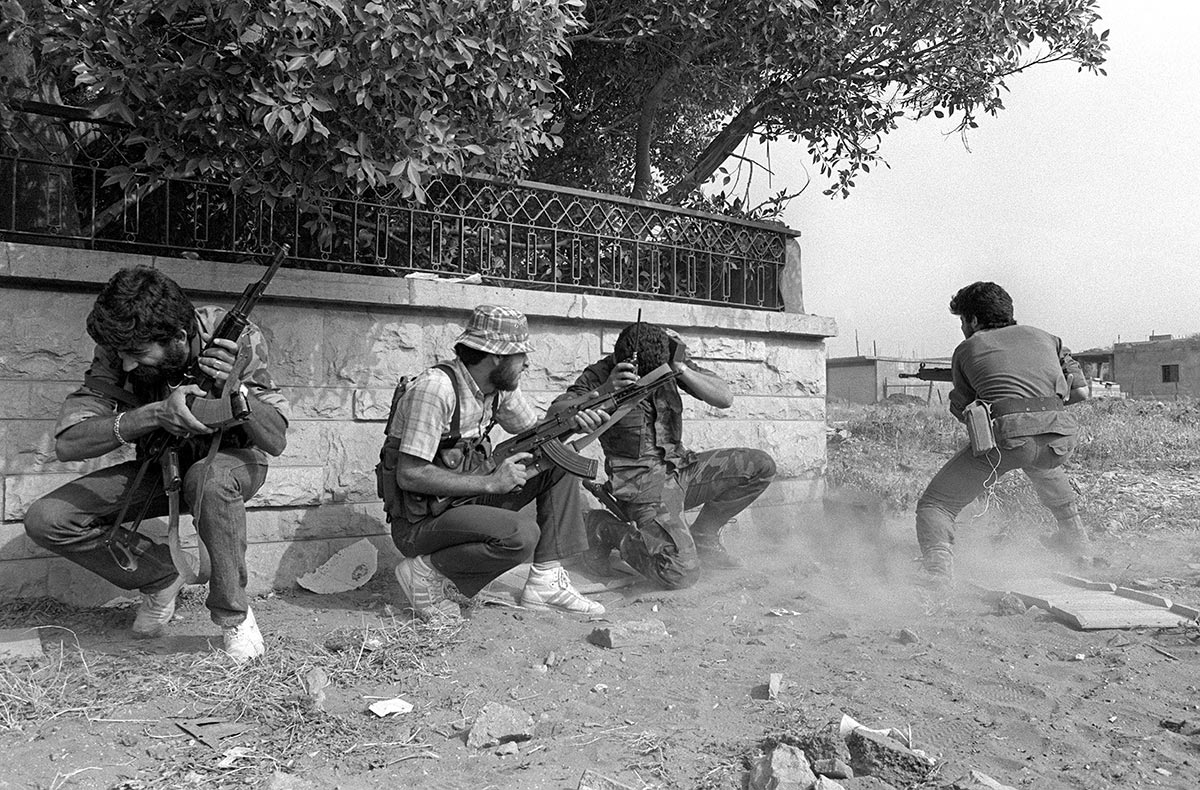
Another point is “selective justice.” The attack against the Hariri convoy killed 22 people and injured dozens, in a country where nothing was done for the many more victims of decades of violence, including a 15-year bloody civil war that claimed an estimated 120,000 lives, with 10,000-17,000 people who disappeared. “I worked with families of disappeared persons. They have been fighting for 40 years to know the truth about those missing. But there has still been very little done for them,” says Nassar. He also points at the war with Israel which broke out in 2006 right when the STL was set up. More than a thousand Lebanese were killed, one million people were displaced, entire villages were erased by Israel. “The powerful are not held accountable. Many crimes remain unpunished, and that’s dangerous. It might fuel tensions in society,” says Nassar.
They received a full investigation on their desk that was of high quality. Why did it take all those years to come with a judgment?” Nassar wonders. Mettraux: “Because they could."
Well-funded hopes
By comparison with other hybrid tribunals, the STL appears particularly well funded, equipped and staffed (see box below). It has no fewer than twelve full-time judges for basically one case. (The tribunal also dealt with two contempt cases against media organizations, of which one ended in an acquittal.) It had the luxury of inheriting the information gathered by a particularly strong commission of inquiry. (There is continuity between the UNIIIC and the STL: when the tribunal kicked off in 2009, it was the UNIIIC commissioner who became the first prosecutor of the STL.) “They received a full investigation on their desk that was of high quality. Why did it take all those years to come with a judgment?” Nassar wonders. Mettraux has a biting answer for it: “Because they could.”
“Everybody is eager to see the outcome” of the trial, says Salamey. “It is significant, it is a historic moment, because people in Lebanon will find justice and closure to this matter at least.” Despite his reservations about the tribunal Nassar is curious to see what the judgement is. “If the court reaches a conclusion and establishes responsibility, it is one step in knowing the truth. If we can get some truth out of it, it’s something,” he says. “But this case is unlikely to be a success when it comes to full accountability and stopping impunity. It has also not been successful in terms of local ownership, connecting with the Lebanese,” he adds. Mettraux hopes the judgment may have significance for the victims. “There are 22 people who died. We heard horrific testimony of victims who were wounded and maimed. These people deserve justice. I hope it will do good for the victims, but claiming that it will have that effect is not good enough. At the very least I hope they find a bit of peace,” says Mettraux.
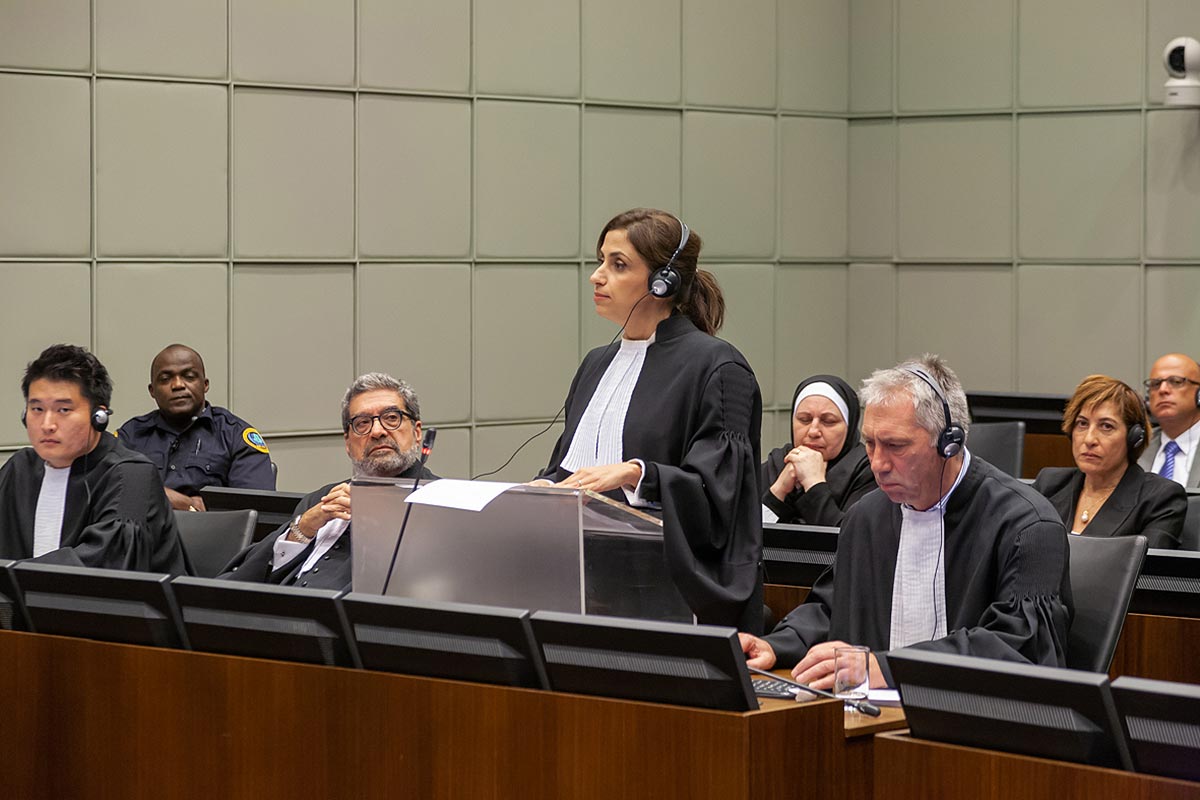
Several other cases dealing with attacks in 2004 and 2005 may fall in the tribunal’s jurisdiction. If cases are opened with such opportune timing, the STL could potentially go on for decades.
Justice forever?
As the judgment on the Hariri attack was being written and the STL mandate, which runs until February 2021, was drawing to an end, it seemed that the STL was getting near a possible finish. But then on 16 September 2019 the pre-trial judge lifted the confidentiality of an indictment, opening a new case which focusses on the attacks against the Lebanese politicians Marwan Hamade, Georges Hawi and Elias El-Murr. There is one single accused in this case, and he is a well-known though absent figure: Ayyash. As there’s little prospect for him to appear in court, it is likely this becomes another trial in absentia. “This second case may be perceived as repetitive,” admits Nassar, “but from a truth-seeking perspective it is important, as it establishes a clear pattern. It puts the spotlight on the horrific tradition in Lebanon to settle political disputes through assassinations, which the country has sadly experienced since its independence.”
This case could actually prevent the tribunal from closing down any time soon, while there are several other cases dealing with attacks in 2004 and 2005 that may fall in the tribunal’s jurisdiction. In fact, if cases are opened with such opportune timing, the STL could potentially go on for decades. The authority that decides on the lifespan – and who could pull the plug – is the UN Secretary General. When the end of a mandate is in sight, the president of the tribunal can request for an extension. The UNSG then consults with the Lebanese authorities before taking his decision. The extension matter is currently “a sensitive” issue, says a source, as the STL president hasn’t made her request yet to keep the court open beyond 2021.
Meanwhile the tribunal is the scene of an astonishing open legal battle between Judge David Re and the president of the tribunal. The judge objected to the fact that the president didn’t consult with other judges when she convened the new trial chamber dealing with the second case. Re, who was not selected for this job, said she wrongly had assumed that the judges conducting the Hariri trial couldn’t handle two cases at a time. Re even tried to stop a new judge from being sworn in. It led to filings turning in traffic lights – being public, made confidential, turned public again – and judges discussing the row, which led to new filings and allegations.
When the verdict is pronounced it will be news for two days on the BBC and in The Guardian. That’s it. It will be forgotten and will likely be a footnote in history." – Guénaël Mettraux
“A footnote in history”
So was it worth all the money? “It was,” replies Imad Salamey, “even a billion would be nothing to bring truth and good closure to such a series of assassinations, and to set the record. Not only in Lebanon, but also the region.” But the costs for the tribunal, half of which has been paid for by Lebanon, leaves Nassar baffled. “For a country that is bankrupt? So much money has been spent on just one trial which will leave very little legacy in Lebanon in terms of justice. It becomes a little obscene. If justice has no effective societal impact, I wonder whether it merits the investment,” says the Impunity Watch policy and research director. While hundreds of millions were invested in the court, there were hardly funds for the many people affected by war and conflict. “How unfair is this,” says Nassar.
Mettraux recalls that the tribunal’s early ambitions were “basically fixing Lebanon, bringing the rule of law and reconciliation to Lebanon and its communities. But look at what’s been achieved: basically nothing that can be concretely demonstrated or measured. When the verdict is pronounced it will be news for two days on the BBC and in The Guardian. That’s it. It will be forgotten and will likely be a footnote in history.”
970 MILLION DOLLARS AT A MINIMUM
Counting all the annual budgets of the Special Tribunal for Lebanon since 2009 and including 2020, the court has cost 800 million dollars net. (The STL does not publish its budget gross amount, unlike all other international tribunals.) But the total expenditure for the case at hand is much higher as the previous investigative missions should be added as well. In its 4-year existence the UNIIIC alone cost 170 million dollars. The total amount spent on the case of the killing of ex-prime minister Hariri and 21 others, therefore amounts to 970 million dollars at a minimum. (Additional costs for the setting up the court in 2008-2009 could not be found.)
The annual budgets are being paid for by states. Lebanon funds 49 percent of the annual budget, and the other 51 percent comes from voluntary contributions from other states and the European Union. This also implies that the budget was once largely controlled by one of the victims, as Saad Hariri, who is the son of the killed Rafik Hariri and participates as an official victim in the proceedings, was prime minister of Lebanon from September 2009 to January 2011, and again from December 2016 until January 2020.
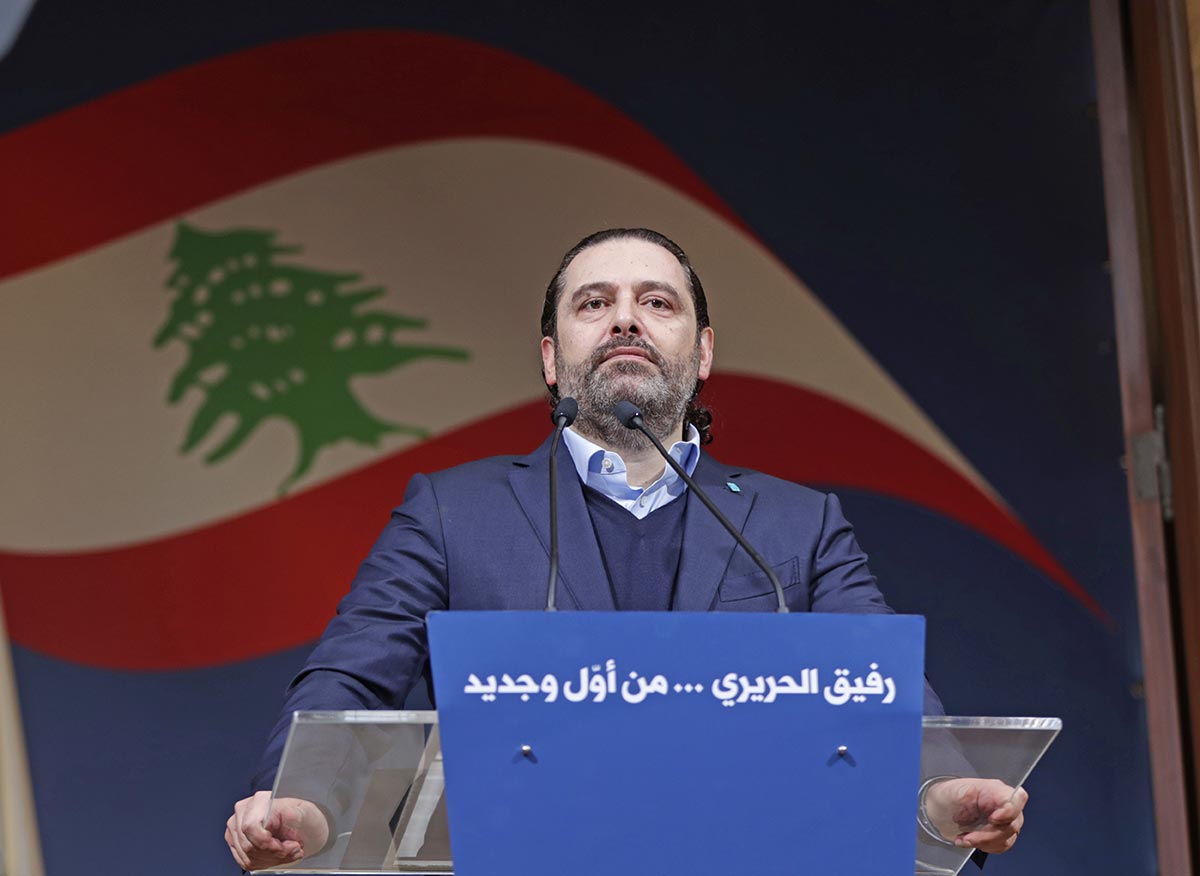
During the STL’s history, 29 countries have contributed. STL’s first budget was USD 51.4 million in 2009, while the current 2020 budget is 55 million euros. (The STL switched from a budget in dollars to a budget in euros in 2012.) The tribunal won’t disclose the amount each state has been paying. It is up to the governments to expose their contributions, the court said. For instance, The Netherlands paid 4.5 million euro in 2009 for housing, safety glass and other security measures; its contribution to the current budget is 2 million euro (over the years the total was 32 million euro).
A Management Committee composed of the STL’s ten largest supporters (Lebanon, The Netherlands, France, Canada, United Kingdom, Japan, Italy, Germany, the European Union and the USA) oversees and approves the budget, can assist with fundraising and encouraging state cooperation, the spokesperson of the STL said. The committee “plays no role in the judicial proceedings,” says the court. According to the Dutch Ministry of Foreign Affairs, Saudi Arabia is also among the “big donors” although this appears in no STL official document.
The STL is well equipped and staffed. It has no fewer than 12 full-time judges, for basically one case at the time. (In comparison, the International Criminal Court, which is investigating more than a dozen conflict situations, has 18 judges). As of December 2019, the Tribunal employed 399 staff members, of whom 17.6% were Lebanese.
Reacting to the total cost of the court, Habib Nassar, policy and research director with Impunity Watch says: “It is a very shocking number when you know how little effect the tribunal has. There should be a debate about the cost of justice. There’s an ocean of impunity in Lebanon. It’s hard for victims to swallow that half of the money for the STL came from Lebanon, while nothing was done for them. If justice is not even-handed, but selective, its impact can be limited or worse.”


